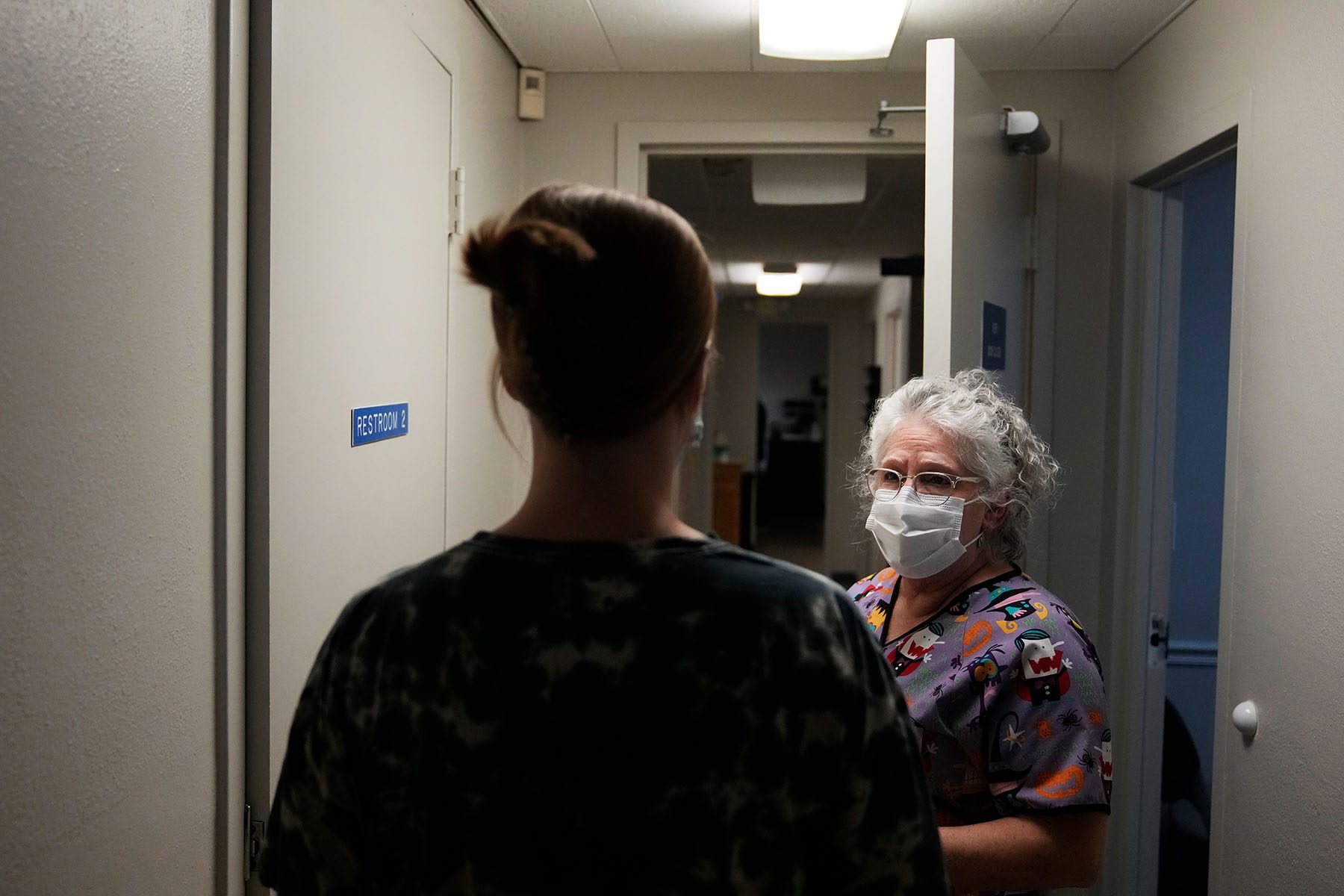The Supreme Court has allowed abortion providers to challenge Texas’ six-week abortion ban, the strictest active abortion restriction in the nation. But the ruling’s narrow scope means it is unlikely that such abortions will soon resume in the state.
Despite allowing a lawsuit to proceed, the court did not block the Texas abortion law. As such, abortion providers in the state have indicated they will not yet be providing abortions for people pregnant beyond six weeks because of the potential for civil lawsuits to still be filed under the law.
“This does not feel like a green light for us to reopen,” said Amy Hagstrom Miller, CEO of Whole Woman’s Health, one of the state’s biggest abortion provider networks. “There’s no injunction blocking this law from going into effect, and the risks for clinic staff and physicians remain great.”
So far, the state’s abortion providers have turned away hundreds of patients seeking abortions since the law went into effect September 1, now more than 100 days ago. Most of those patients cannot afford to travel to other states where abortion is available, Miller said.
In its decision, the court also significantly limited whom Texas’ abortion providers are allowed to sue in their challenge. Friday’s decision, authored by the court’s conservative wing, held that only four Texas licensing boards — the state health department, medical board, nursing board and pharmacy board — are liable to be sued.
The implications are significant, legal scholars told The 19th. The Texas law was designed to evade judicial review. Rather than criminalizing abortions after six weeks, it creates what is effectively a bounty-hunting scheme, by incentivizing private citizens to sue anyone who “aids or abets” such an abortion. Successful plaintiffs receive a minimum $10,000 reward, and their legal fees reimbursed.
The threat of such lawsuits has effectively ended access to most abortion in Texas; no clinic has performed abortions for pregnancies beyond six weeks while the law has been in effect, though one doctor has.
Despite the enforcement role civil courts play, the Supreme Court argued that the state’s judicial bodies — court clerks and the attorney general — cannot be sued over the abortion law, known as SB8. That makes it difficult to see how lower courts could issue any kind of ruling or injunction that paves the way for abortions in Texas, said Steve Vladeck, a professor at the University of Texas School of Law and expert in federal courts.
“Even if there’s an injunction against [licensing boards], how does that prevent random plaintiffs from bringing enforcement actions against providers? How does that solve the problem that’s currently preventing providers from performing abortions?” he said. “That, from the providers’ perspective, is not winning.”
Technically, the case has now been remanded to a federal court in Austin, the U.S. District Court for the Western District of Texas. The presiding judge, Judge Robert Pitman, has previously ruled against SB8 and granted an injunction blocking the statute.
In his October decision, Pitman noted that the abortion restriction defies precedent established in the 1973 case Roe v. Wade, as well as 1992’s Planned Parenthood v. Casey. Those cases enshrined the right to an abortion up until a fetus can live outside the womb — which typically occurs around 24 weeks.
In theory, Pitman could attempt to issue a similar ruling. But in practice, if abortion providers are able to sue only medical licensing boards over their role in enforcing the law, the district court’s ruling would probably have little effect. It is unclear how Pitman — or any judge — could issue a decision in such a limited case that would still stop private citizens from having the power to sue either abortion providers or anyone else who helps someone get an abortion.
“By only allowing the lawsuit to go forth against these defendants, it raises uncertainty about whether the district court has authority to award what would be effective relief,” said Leah Litman, a constitutional law expert at the University of Michigan. “If the relief the district court orders doesn’t do anything to delete the prospect of civil lawsuits against abortion providers, then abortion providers aren’t gong to be able to resume providing abortion.”
It is unclear when the lower court will issue a decision. Vladeck and Litman both said they expect one “soon” — though it may take somewhat longer, given the legal complexities of the case.
And any decision could potentially be appealed to the U.S. Court of Appeals for the 5th Circuit, the conservative federal court that oversees Texas.
Legal experts suggested that the court’s decision could also offer Texas a framework to retool its abortion ban so that it no longer incorporates medical licensing boards, a strategy that could potentially help both it and other states more fully evade judicial review.
It also could suggest to states that there is in fact a way to pass laws restricting certain rights — abortion or otherwise — that are theoretically protected by the Constitution.
Meanwhile, the Supreme Court is considering another challenge to abortion rights, known as Dobbs v. Jackson Women’s Health. In that case, heard December 1, the court is considering whether to overturn Roe v. Wade entirely, a decision that would eliminate any federal abortion protections and could give states full freedom to ban the procedure.
A majority of the court appeared open to such a ruling during the Dobbs oral arguments. That could ultimately shape how the courts rule in Texas, too. In Friday’s ruling, the majority did not opine on the constitutionality of Texas’ law — only on whether abortion providers had the right to sue, and whom they were allowed to challenge.
“It’s possible the lawsuit will [eventually] result in a loss on the merits if and when the court overrules Roe and Casey. Given what transpired at the oral argument in Dobbs, I think that’s more likely,” Litman said. “It’s not clear this lawsuit is going to provide meaningful protection for abortion rights in the short or long-term.”







